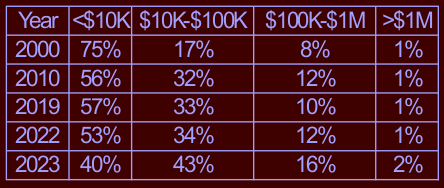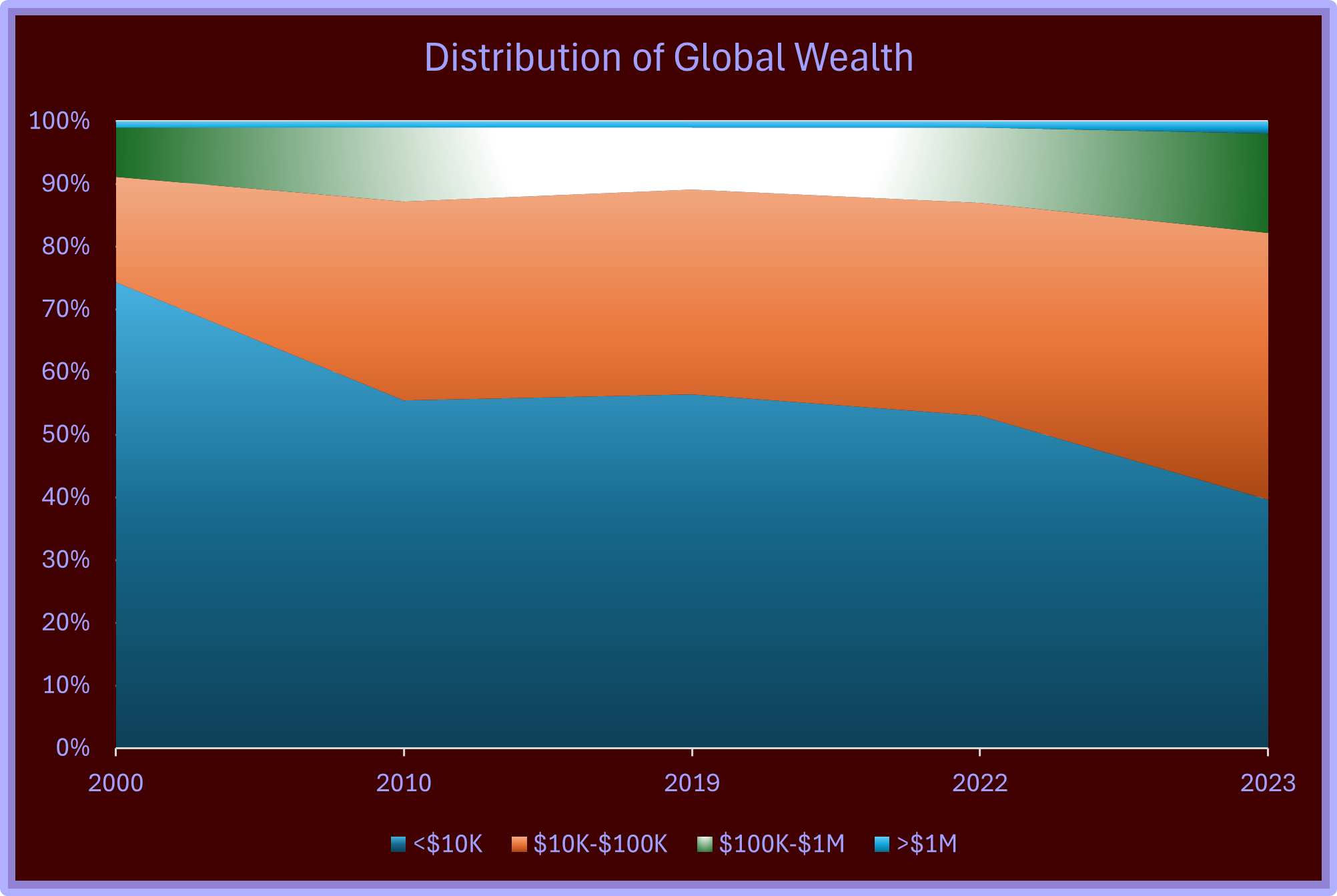

In past articles, 'More Pie Please', and 'Does Amazon Deliver', I explained the difference between a fixed economy, where a fixed amount of wealth is divided among the population, and a growth economy. In a fixed economy, such as in pre-capitalist societies, the only way for anyone to increase their wealth was at the expense of others. This contrasts with a growth economy, which is the result of capitalism. In a growth economy, everyone gets wealthier by increasing the total wealth available. Worldwide wealth has been growing by about 5% per year, a clear indication of the benefits of capitalism. We are so used to thinking of the economy as fixed that we persist in the long outdated habit even two or three hundred years after capitalism began to change all that. We don't understand how making everyone wealthier is possible without someone paying the price. The answer lies in the fundamental idea of what capitalism means. In its simplest form, capitalism is investing resources today to create more resources for tomorrow. That's the key: creating more resources; more resources means more wealth to share. In previous articles, 'July 4th Worldwide', and 'American Capitalism', I wrote about the growth in per-person GDP since the birth of capitalism. In this article, we will examine global wealth. According to the McKinsey Global Institute, since 2000, the world's total wealth, which refers to the total value of all assets and resources, has grown from about 440 trillion inflation-adjusted dollars to a little over 1300 trillion dollars. This over 870 trillion dollars increase is new wealth created by capitalists investing in new and better products and services. In 1900, total worldwide wealth was about two trillion dollars. In 2023, it was over 650 times that amount. This change is the effect of a capitalist growth economy. Here's how the distribution of the percentage of people in each wealth group has changed in only 23 years.

The following chart shows how the distribution of wealth has changed in the last twenty-three years. Throughout the world, people benefit from the increase in wealth and becoming wealthier. Unlike the myth and fixed economy thinking, it's not just the rich who benefit. During the past twenty-three years, the percentage of the global population with wealth between $10,000 and $100,000 has more than doubled. At the same time, the cohort with the least wealth, less than $10,000, has almost been cut in half. The portion of adults in this lowest cohort has dropped from 75% in 2000 to 40% in 2023. At the same time, the cohort with wealth between $10,000 and $100,000 has more than doubled from 17% to 43%. That's a greater increase than either the $100,000 to $1,000,000 cohort or the over $1,000,000 cohort. So, the rich are getting richer but not as fast as those below $100,000 in wealth.

The anti-capitalists, who are often driven by either ignorance or ideology, would have you believe that the capitalists, the folks who invest for the future, are unfairly taking from the masses. Whether these anti-capitalists are merely ignorant or maliciously pushing harmful ideology, the facts show they are woefully wrong. Capitalists are the creators of the growth of the economy. If you have a retirement or savings account, you are one of those investing for a better future; you are a capitalist. Nothing grows without investment. Plants need water and fertilizer; muscles need stress and protein. Children need care and nurturing. The economy needs capitalists to invest and make it grow. The result of capitalist investment is that global wealth is increasing for everyone. My projections indicate that global wealth will double in the next twelve years. The anti-capitalists want to 'kill the goose that lays the golden eggs.' They wish to over-tax and vilify the investors that will make the world twice as wealthy by 2036. The anti-capitalists, either out of ignorance or misplaced ideology, would undo the wealth gains of the world's poor, as seen above, and preventing the gains of the next twelve years in which it is likely to be cut in half again. The next time you hear someone tell you that Elon Musk, Jeff Bezos, or Bill Gates are too rich, explain to them that the fixed economy in which one person's riches were another person's loss went the way of the dodo with the birth of capitalism. Show them that in a growth economy, wealthy investors grow the economy for the benefit of everyone, and those lowest on the economic ladder are the primary beneficiaries. Free-market capitalism is the only authentic way to reduce poverty and build a wealthier world.
If you found this article stimulating, please share it with other folks who might enjoy it. And please share your thoughts below. Dr. Cardell would love to hear from you.

Responses